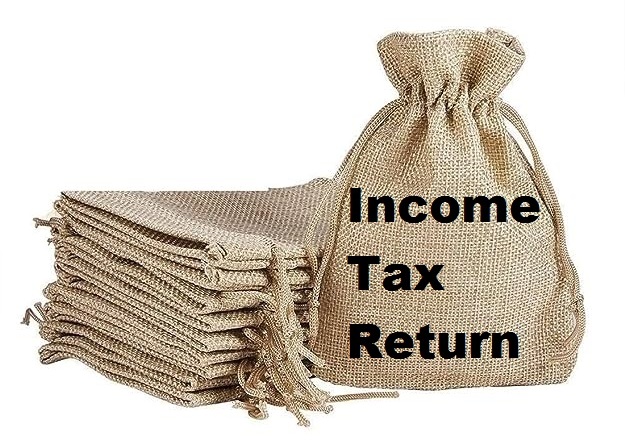Whether Mandatory deduction of 1/3rd of total consideration towards Value of land is justified?

Goods and Services Tax (GST) is one of the biggest indirect tax reforms since independence. It has subsumed various indirect taxes such as VAT, Excise Duty, Service Tax, Sales Tax, Entertainment Tax, etc. With the introduction of GST, it was presumed that various taxation disputes with respect to Real Estate Industry shall stand resolved. However, taxability of real estate transactions involving composite supply of goods, services and land is one of the most debated issues under the pre-GST regime which continued even under GST regime.
By CA Richa Gulati
Here, we would like to deliberate upon deeming fiction created in respect of value of land for real estate transactions, challenges being faced by the taxpayers and the probable/alternate solutions that can be looked at. Before discussing the statutory provisions with respect to the same, we would like to ponder over the issue involved therein with the help of an illustration tabbularised as under:
| Mr A booked a Villa of 500 sq yards in size in DLF in Meerut UP | 2.5 cr |
| Mr B booked a Villa of 500 sq yards in size in DLF in South Delhi | 14.25 cr |
| Value of Land in South Delhi | Rs 250000 per sq yard |
| Value of Land in Meerut UP | Rs 15000 per sq yard |
| Value of Deduction in terms of Notification No 11/2017 – Central Tax (Rate) dated 28.06.2017 towards value of Land | |
| In case of Mr A | |
| Value of Deduction | 83 lacs |
| Taxable Value | 1.67 CR |
| In case of Mr B | |
| Value of Deduction | 4.75 CR |
| Taxable Value | 9.5 CR |
If we analyse above stated examples, in case of Mr A, value of land deducted is more than the actual value of land which is Rs 75,00,000/-, however, in case of Mr B value of land deducted is Rs 4.75 crores which is less than actual value of land which is Rs 12.5 cr.
It is to be assumed that construction cost incurred by DLF in both the areas is similar.
In view of above, it is clear that the issue which is to be deliberated here is whether mandatory deduction of 1/3rd of total consideration towards value of land as prescribed under the impugned Notification is justified?
In this regard, it is essential to advert towards Paragraph 2 to Notification No 11/2017 – Central Tax (Rate) dated 28.06.2017 which provides that, in case of supply of construction services, involving transfer of land or undivided share of land, the value of such supply shall be equivalent to the total amount charged for such supply less the value of transfer of land or undivided share of land, as the case may be, and the value of such transfer of land or undivided share of land, as the case may be, in such supply shall be deemed to be one third of the total amount charged for such supply.
Where, “total amount” means the sum total of,-
(a) consideration charged for aforesaid service; and
(b) amount charged for transfer of land or undivided share of land, as the case may be including by way of lease or sublease.
It is pertinent to highlight here that Section 9(1) of CGST Act, 2017 is the charging section which imposes tax on the supply of the goods and services. The scope of “supply” is defined in Section 7 of the said Act. By virtue of Section 7(2) of CGST Act, 2017, the transactions as specified in Schedule III to the CGST Act, 2017 are excluded from purview of supply. Sale of Land is included in Entry No 5 of the Schedule III to the CGST Act. Thus, sale of land is neither supply of goods nor supply of services.
In view of Paragraph 2 as stated above, only 1/3rd of the total amount is attributed towards abatement, even though there is separate and identifiable value of land. It is averred that the liability sought to be fixed by way of deeming fiction so as to presume only 1/3rd of total consideration is ultra-vires the Section 7 and Section 9 of CGST Act, 2017.
Further, in terms of Section 15 of CGST Act, 2017, the value of supply of goods or services or both should be the value which is the price actually paid or payable for the said supply of goods. When the statutory provision requires valuation in accordance with the actual price paid and payable for the service and where such actual price is available, then tax has to be imposed on such actual value. Deeming fiction can be applied only where actual value is not ascertainable.
Thus, mandatory application of deeming fiction of 1/3rd of total agreement value towards land even though the actual value of land is ascertainable is clearly contrary to the provisions and scheme of the CGST Act and therefore ultra-vires the statutory provisions.
Further, it is a settled legal position that a delegated legislation cannot travel beyond the scope of parent legislation. In this regard, strong reliance is placed on following:
- Indian Express Newspapers (Bombay) Private Limited V Union of India & Ors. (1985) 1SCC 641
- Kerala Financial Corporation V Commissioner of Income Tax (1994) 4 SCC 375
- ITW Signode India Ltd V Collector of Central Excise (2004) 3 SCC 48
Thus, a notification has to be in consonance with the scheme of GST Acts and rules made thereunder.
Apart from being contrary to the statutory provisions contained in CGST Act, 2017, one of the most glaring feature of the impugned deeming fiction is its arbitrariness in as much as the same is uniformly applied irrespective of the size of the plot of land and construction therein. The standard rate of deduction is provided irrespective of nature of transaction, area or whether it is a case involving transfer of land itself or undivided share in land. As already explained in the example stated above, the said deeming fiction leads to arbitrary and discriminatory consequences. Thus, it could be clearly said to be violative of Article 14 of the Constitution of India which guarantees equality to all and also frowns upon arbitrariness in law:
“14. The State shall not deny to any person equality before the law or the equal protection of the laws within the territory of India.”
In view of above, it can be inferred that by treating unequal equally, the legislative measures is violative of Article 14 of the Constitution.
Further, it is also essential to highlight that under service tax regime, prior to Finance Act, 2017, there was no mechanism to compute the value of land in terms of Rule 2A of Service Tax (Valuation) Rules, 2004. Consequently, Delhi High Court vide judgement in the case of SURESH KUMAR BANSAL & ANUJ GOYAL & ORS. VERSUS UNION OF INDIA & ORS. 2016 (6) TMI 192 – DELHI HIGH COURT dated 03.06.2016 held that there is no machinery provision for ascertaining the service element involved in the composite contract. In order to sustain the levy of service tax on services, it is essential that the machinery provisions provide for a mechanism for ascertaining the measure of tax, that is, the value of services which are charged to service tax. While the legislative competence of the Parliament to tax the element of service involved cannot be disputed but the levy itself would fail, if it does not provide for a mechanism to ascertain the value of the services which is the subject of the levy. Clearly service tax cannot be levied on the value of undivided share of land acquired by a buyer of a dwelling unit or on the value of goods which are incorporated in the project by a developer.
Levying a tax on the constituent goods or the land would clearly intrude into the legislative field reserved for the States under List II of the Seventh Schedule of the Constitution of India.
Subsequent to above, Legislature vide Finance Act, 2017 brought retrospective amendments in Rule 2A of Service Tax (Determination of Value), Rules, 2006 which specifically provided for deduction of value of land from the gross amount charged for the purpose of computing service tax. Relevant text of the Rule reads as under:
(i) Value of service portion in the execution of a works contract shall be equivalent to the gross amount charged for the works contract less the value of property in goods, or in goods and land or undivided share of land, as the case may be transferred in the execution of the said works contract.
In view of above, it is clear that service tax shall not be levied on value of land. When such workable mechanism for deduction of land was already in force under service tax regime, the same ought to have been continued. However, Legislature sought to fix a standard rate of deduction without any regard to different possible factual scenarios which is completely arbitrary and violating Article 14 of the Constitution.
In order to substantiate our view, we would like to place reliance in the case of Munjaal Manishbhai Bhatt Versus Union Of India 2022 (5) TMI 397 – GUJARAT HIGH COURT dated 06.05.2022 wherein Hon’ble Gujarat High Court has struck down Paragraph 2 of the Notification No. 11/2017 – Central Tax (Rate) dated 28.06.2017 to the effect that deeming fiction will not be mandatory. Relevant text is reproduced as under:
“124. The impugned paragraph 2 of Notification No. 11/2017-Central Tax (Rate) dated 28th June 2017 and the parallel State tax Notification is read down to the effect that the deeming fiction of 1/3rd will not be mandatory in nature. It will only be available at the option of the taxable person in cases where the actual value of land or undivided share in land is not ascertainable.”
Vide above stated judicial pronouncement, High Court has held that provision mandating 1/3rd deduction towards land for valuing construction service is ultra-vires the scheme of GST.
Note: It is to be noted that Revenue has filed a Special Leave Petition in Hon’ble Supreme Court of India in above stated case, i.e. Union Of India Vs. Munjaal Manishbhai Bhatt vide SLP(C) No. 021703 – 021703/2022 dated 28-11-2022 and the said case is still pending before Hon’ble Supreme Court.
Conclusion
In the light of discussion made herein above, it can be easily averred that value of land should not be subject to GST. In other words, actual value of land shall be deducted from total consideration while computing the amount of GST. However, it is also emphasized here that the said matter is subject to litigation and is contestable in the courts.
Further, it is also advised that a separate agreement may be entered for supply of Land and supply of construction services. It will be easy to determine the actual value of land to be reduced from the total value of consideration and the probability of litigation will also be reduced while relying on the above stated judicial pronouncement.
However, a doubt might arise as to what if the department doubts the correctness of the value assigned in the contract towards construction or land. If it is established that such value was not the sole consideration for the service, then resort can be had to the valuation rules (i.e. Rule 27 to Rule 31) and value can be derived by applying the cost plus profit method or a reasonable value consistent with the principles and provisions of the Statute. When such detailed statutory mechanism for determination of value is available then the impugned deeming fiction cannot be justified on the basis that it is meant to curb avoidance of tax when in fact such fiction is leading to arbitrary consequences.





